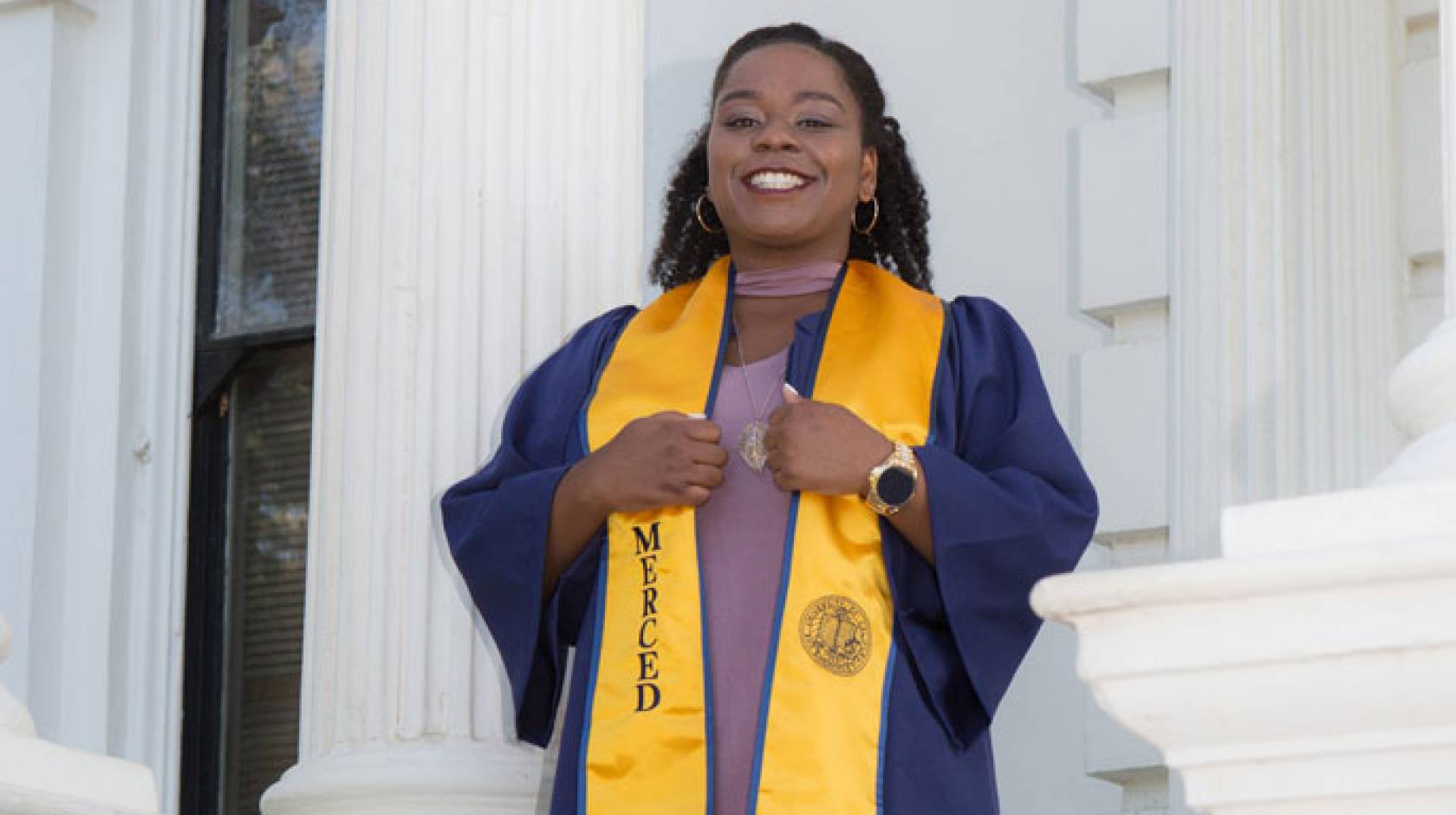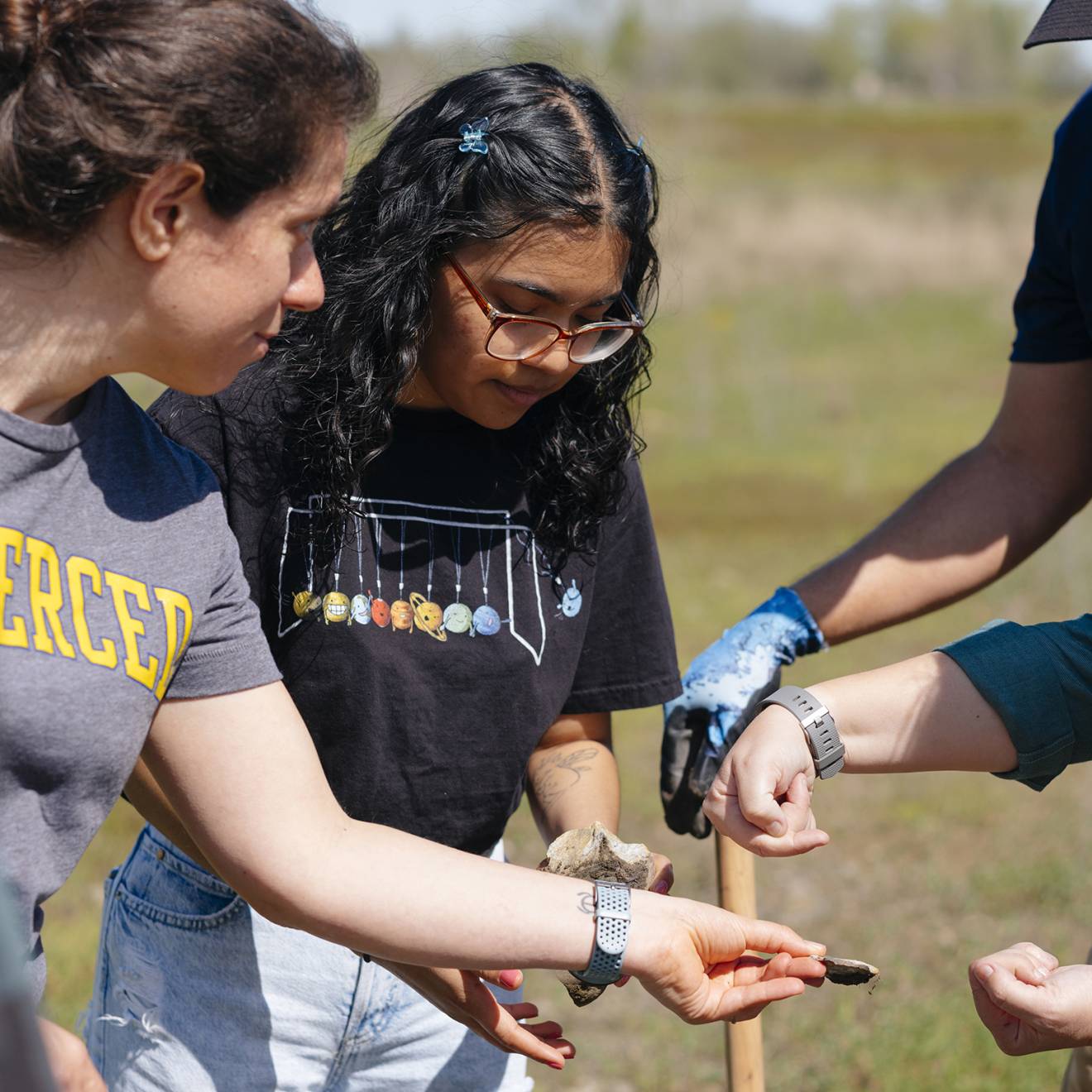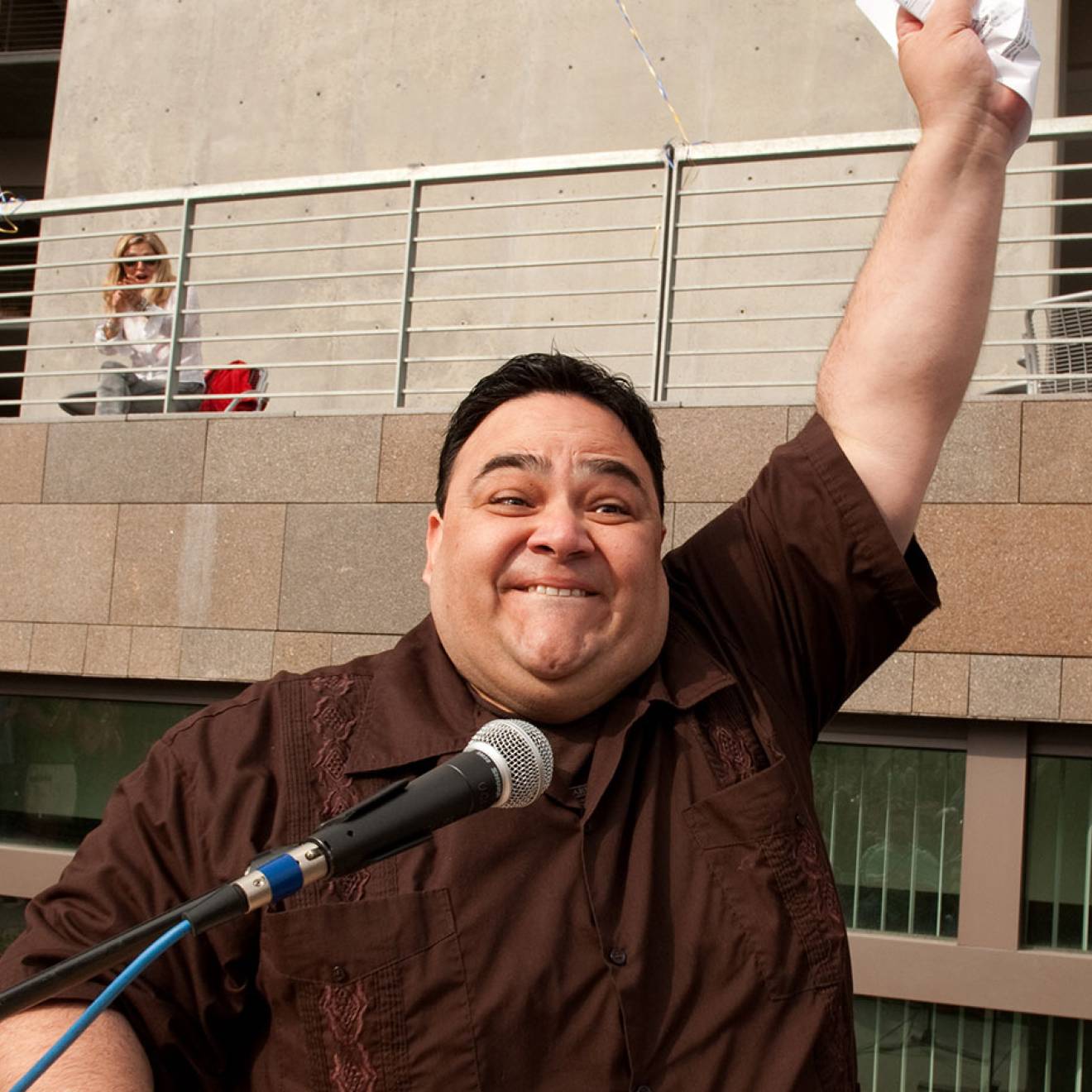Brenda Ortiz and Nicole Freeling, UC Merced/UC Newsroom

The odds of Tomanik’e Banks graduating from college were slim — only slightly lower than the odds she’d go to college at all.
But Banks had one thing going for her that many others don’t: determination.
When Banks crossed the UC Merced commencement stage May 12 to earn her degree in public health, she became one of only about 3 percent of foster youth to graduate from college. Now, that same determination is carrying her on to a new adventure — as a Peace Corps volunteer working with the health department in Sierra Leone.

Courtesy of Tomanik’e Banks
“I know what it’s like to grow up in poverty and to have to make decisions like, do I want to pay for toothpaste, because cavities are bad, or pay for food, because hunger is worse,” said Banks.
The Oakland native, who ships out June 16 for a 27-month journey, has never been out of the country before, but she survived much of her young life by being able to adapt to different environments.
Banks, the child of a single mom, grew up being shuttled between households and caregivers as her mother battled an ongoing drug addiction.
Even as she faced those challenges, however, teachers and other adults noticed her potential.
“My mom always told me, ‘You are so much smarter than I was at your age, you’re going to be successful,’” she said. In third grade, a school staff member told her, “‘You are too smart to be sent to the office. You’re going to be a doctor one day,’” Banks said. “I didn’t necessarily think about college until then.”
‘Hi, my name is Tomanik’e, and I am not getting a C in this class’
Yet, at that same time, life at home was spiraling out of control. Over the next several years, Banks barely went to school as she and her three siblings bumped around between various unstable living situations. At one point, she lived with her aunt, one of 14 people in a two-bedroom house. Not registered as a student anywhere near where she was staying, she would watch enviously as other kids boarded the school bus.
But when she was able to stay in one place long enough to attend classes, the once promising student was shocked at how far she’d fallen behind her classmates. “I did not like feeling dumber than my peers.”
When she was placed in foster care — near the end of sixth grade — she had little more than a second-grade education. And while her situation was hardly stable, she could at least count on consistently being in school. “That was when I decided to take the initiative and put my studies before everything else,” she said.
She would ask teachers for additional help during lunch and recess, trying to get as much one-on-one time as possible. Math was a particular challenge, so she made a point of making sure her teachers knew who she was from the first day of class.
“I’d tell them, ‘Hi, my name is Tomanik’e and I’m going to be asking you a lot of questions because I am not getting a C in this class.’”
She went through seven foster placements and six homes, but was able to successfully petition the court for the right to remain in the same high school throughout her placements. She was soon a 4.0 student and member of the honors society. She also became captain of the tennis team, joined clubs and volunteered in her school’s cafeteria every morning, an experience that solidified her commitment to helping others. “I just loved the way it felt,” she said.

Credit: Shirl Foster
The journey to university
When she applied to university, Banks was accepted at more than half a dozen. UC Merced wasn’t at the top of her list, but a visit during Bobcat Day sealed her decision. “I really fell in love with the campus; I loved how intimate it was,” she said. “I loved the energy and spirit of UC Merced. You go to other universities to meet competitors and you come to UC Merced to make friends.”
Banks was accepted into UC Merced’s Guardian Scholars program, which provides support for foster youth and helps them stay in college. She helped found the Guardian Scholars Club, which is an added resource for UC Merced students and foster youth in the community.
That support came in handy during her second year, when the combination of pressure from family and school responsibilities almost derailed her academic career.
Her mother, who was going through a particularly difficult time, would call her several times a day and speak to her on the phone for hours. Her younger brothers needed help at home. Meanwhile, she had a job that required her to be on campus, and coursework was piling up.
“I put my education on the back burner, which I’d never done before and I will never do again, because it did not work out well for me,” said Banks, who drew on her Christian faith to help her reprioritize. “I realized I could help my family more in the long run if I was able to complete my education.”
During that time, she struggled with depression. “My squad [of friends] saved me,” she said. “They would show up and say, ‘come on, let’s go — we’re going to go for a walk. We’re going to get dinner.’”
Soon, she was back on track with her grades and her outlook, serving as a mentor to others through Guardian Scholars and other clubs.
One day, she learned about the Peace Corps from students tabling in the quad. “I was like, ‘Oh my goodness! When can I do this? Sign me up!’”
Fast-forward to now: Banks recently celebrated commencement with her last foster family, the Wongs, along with her grandmother and younger brothers. She is busy with last-minute shopping runs to stock up on toiletries, medicine and other supplies for her move to Sierra Leone.
She has been devouring maps and blogs from other Peace Corps volunteers, and downsizing her belongings to fit into a suitcase.
Banks is excited about going to Africa and discovering a new part of the world, but she is equally thrilled to do the work to which she is deeply committed: making sure that people have access to basic health care necessities.
“Life is way too short to be bitter,” she said. “There are people who have it way harder than I have it; if they can survive, then I need to chill.”

